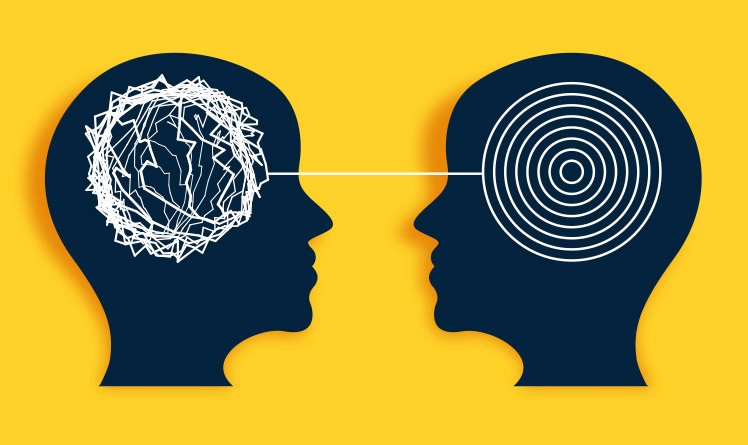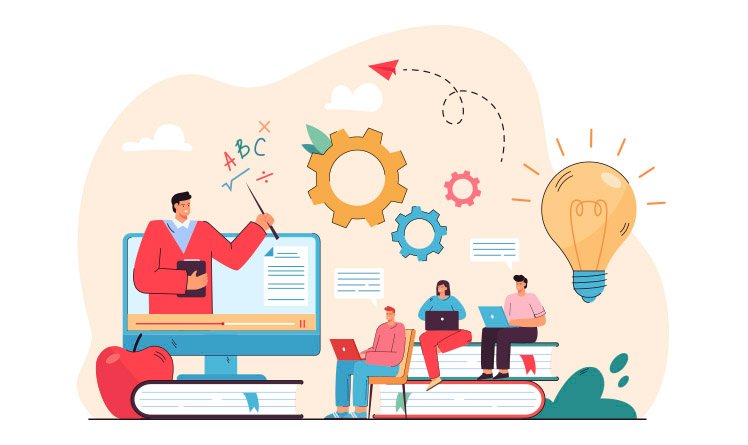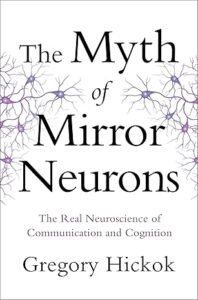Mirror neurons: what they are and how they act in our lives

|
Getting your Trinity Audio player ready...
|
Mirror neurons are one of the most fascinating and hotly debated topics in contemporary neuroscience. Discovered in the 1990s, these neurons have been linked to a wide range of human behaviors, from empathy to learning.
But what exactly are mirror neurons and how do they play a role in our daily lives? In this article, we will explore these questions in depth, examining their discoveries, functioning, importance and impact on our daily lives.
What are mirror neurons?
Imagine that you are watching someone play the piano. As you watch, you not only see the person’s fingers moving across the keys, but you also feel a firing in your own brain, as if you were playing the piano yourself. This firing is mediated by mirror neurons, special nerve cells that fire both when we perform an action and when we watch someone else perform the same action.
Mirror neurons were discovered by chance in 1996 by a team of Italian researchers led by Giacomo Rizzolatti. During experiments with monkeys, scientists noticed that certain nerve cells in the brain activated both when the monkeys performed an action and when they observed another individual performing the same action. This led to the identification of mirror neurons, which are responsible for “mirroring” the observed behavior.
Mirror neurons are found primarily in areas of the brain involved in motor planning and understanding the actions of others. In this way, they allow individuals to understand and reproduce the actions and emotions of others, as if they were experiencing these experiences themselves. This mechanism is fundamental for empathy and social learning.
How do mirror neurons work?
The neural mirror system is a complex network of neurons that connects to different areas of the brain, including the premotor cortex, the parietal cortex, and the limbic system. So when we observe someone else performing an action, that action activates mirror neurons in our own brain, as if we were simulating the action internally.
The activation of mirror neurons depends on several factors, such as the similarity between the observed action and our own ability to perform it, the intention of the person performing the action and our own emotional state.
Factors influencing mirror neuron activation
Similarity: Mirror neuron activation is strongest when we observe actions that are similar to those we can perform ourselves. For example, if you play the piano, watching someone else play the piano will activate your mirror neurons more strongly than watching someone else play soccer.
Intention: The activation of mirror neurons is also influenced by the intention of the person performing the action. If you perceive that the person is intentionally performing the action, your mirror neurons will activate more intensely than if you perceive that the action is accidental.
Emotional state: Our own emotional state can also influence the activation of mirror neurons. If you are angry, for example, you are more likely to activate your mirror neurons when you observe someone else expressing anger.
The importance of mirror neurons
Mirror neurons play several important roles in our lives, such as:
Observational learning
They allow us to learn new skills by observing others. When we watch someone perform an action, our mirror neurons simulate the action internally, which helps us understand how to perform it ourselves. This ability to learn through observation is fundamental to human development, as it allows us to learn a variety of skills, from walking and talking to playing a musical instrument or playing a sport.

Empathy and social understanding
Mirror neurons are also essential for the empathy, that is, the ability to understand and share the feelings of others. Thus, when we observe someone expressing an emotion, they simulate that emotion in our own brain, which allows us to understand what the other person is feeling. Empathy is fundamental to building healthy social relationships and cooperating with others.
Language development
Mirror neurons also play an important role in language development. When we watch other people speak, they simulate the mouth and tongue movements needed to produce speech sounds. This ability to imitate is essential for learning to speak and understand language.

Creativity and imagination
These neurons are also involved in creativity and imagination. When we think of a new idea or imagine a hypothetical situation, our mirror neurons simulate the actions and sensations we would experience if we were actually in that situation, which is essential for creative thinking and problem-solving.
Emotions and feelings
They are also involved in processing emotions and feelings. Every time we observe someone expressing an emotion, our mirror neurons simulate that emotion in our own brain, which helps us understand what the other person is feeling. After all, sharing emotions is essential for building healthy social relationships and feeling empathy for others.
Self-awareness
Mirror neurons may also be involved in self-awareness, the ability to be aware of oneself as an individual. Observing our own body in motion or our own voice causes them to simulate these movements and sounds in our own brain, which helps us form an image of who we are.
Actions of mirror neurons
In recent years, studies on mirror neurons have expanded, investigating their implications in several areas of neuroscience. Research has shown that these neurons are not only involved in action and empathy, but may also play a role in more complex processes such as language and decision-making.
In education and teaching
Mirror neurons can be used to improve the teaching process and learning. By using observational learning techniques, teachers can facilitate students’ learning of new skills. Additionally, understanding empathy and social reality construction can help teachers create a more positive and inclusive classroom environment.
Therapy and rehabilitation
The findings about mirror neurons have many practical applications. For example, in the rehabilitation of patients with brain injuries, therapists use the principle of mirroring to help patients regain movement and skills. This same principle is used in therapy, for example, observing oneself in a mirror can help patients improve their motor and social skills.
There is evidence to suggest that dysfunction in mirror neurons may be associated with mental health disorders such as depression. After all, people with depression often have difficulty experiencing empathy and connecting emotionally with others, which may be related to abnormal activity in these neurons.
Autism is another area where mirror neurons have been extensively studied. Thus, researchers have explored the hypothesis that deficits in mirror neuron function may contribute to the difficulties in social interaction and communication observed in individuals with autism. This paves the way for new therapeutic approaches focused on stimulating these neurons.
Mirror neurons in everyday life
In our everyday lives, mirror neurons influence how we interact with others. So whether it’s smiling back at someone or feeling compassion for someone in distress, these neurons help us connect in a deep and intuitive way with those around us.
Mirror neurons help us construct a shared social reality. This allows us to understand the world around us and interact with others in meaningful ways. This ability to construct a shared social reality is fundamental to cooperation, communication, and social organization.
Similarly, understanding mirror neurons can also help us better understand the mechanisms of violence and aggression. It is important to be aware of this influence so that we can control our own behaviors and promote peace and non-violence.
In short…
Mirror neurons are a fundamental piece of the neuroscience puzzle, helping us better understand how we connect with others and how we learn through observation. They play a vital role in many areas of our lives, from forming social bonds to developing new skills. As such, we must continue to explore and better understand the role of neurons, so that we can find new ways to improve our mental health, social interactions and learning.
Recommended reading:
Mirror neurons and culture – Ravikumar Kurup and Parameswara Achutha Kurup

Images: Freepik / Freepik / Freepik

Marcel Castilho is an expert in neuromarketing, neuroscience, mindfulness and positive psychology. In addition to being an advertiser, he also has a Master's degree in NLP – Neurolinguistic Programming. As the owner and founder of the communications agency VeroCom and also of the digital agency Vero Contents, he has been studying human behavior for over 30 years.


